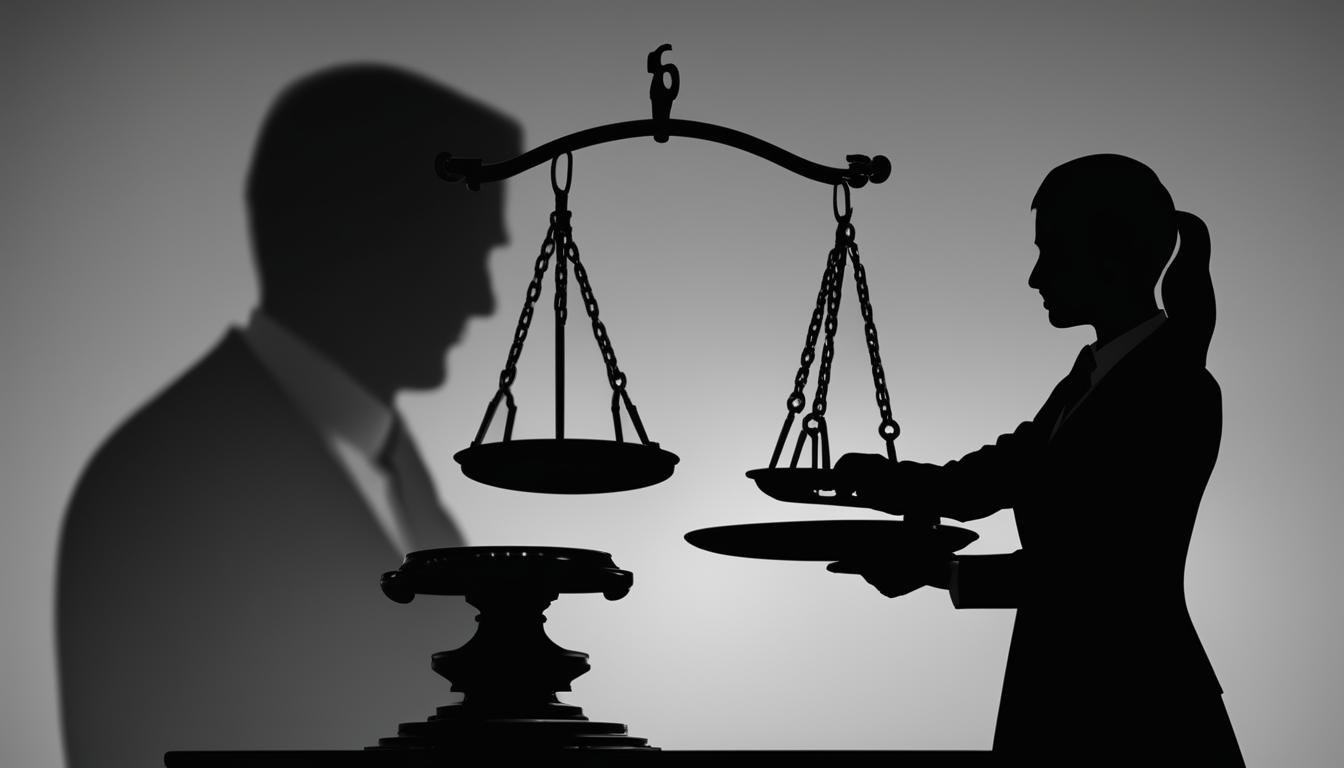Did you know that personal injury lawyers play a pivotal role in seeking justice and compensation for injured individuals? These legal professionals have a wide range of responsibilities that encompass everything from gathering evidence to negotiating settlements, ensuring that their clients’ rights are protected. If you’ve ever wondered about the duties of personal injury lawyers, Irvine Business Attorneys is here to demystify their important role in the legal system.
Key Takeaways:
- Personal injury lawyers manage all aspects of your legal case, allowing you to focus on your physical recovery.
- They investigate the incident, gather evidence, and communicate with the other party’s insurance carrier on your behalf.
- Personal injury attorneys negotiate for a fair settlement and are prepared to file a lawsuit if necessary.
- Irvine Business Attorneys provides legal representation for personal injury cases and offers free consultations.
- They work on a contingency basis, ensuring they only get paid if they win the case.
Why You Need a Personal Injury Attorney
Personal injury attorneys play a crucial role in protecting your rights, advocating for fair treatment, and ensuring justice is served. With their deep understanding of personal injury law, these attorneys navigate the complex legal system on your behalf. When facing a personal injury claim, it’s essential to have an experienced attorney by your side to handle the intricacies of your case. Irvine Business Attorneys, a reputable law firm specializing in personal injury cases, is equipped with the expertise to guide you through this challenging process.
When you hire a personal injury attorney, their duties encompass various crucial tasks. Their primary responsibilities include:
- Investigating Your Case: Your attorney will meticulously examine the details of your incident by reviewing documents, collecting evidence, and interviewing relevant witnesses. This thorough investigation allows them to build a strong case on your behalf.
- Assessing the Strength of Your Claim: Based on the evidence gathered, a personal injury attorney evaluates the merits of your claim. They will consult with experts, such as medical professionals, to determine the extent of your injuries and their impact on your life.
- Negotiating with Insurance Companies: Personal injury attorneys possess excellent negotiation skills and will leverage their expertise to advocate for your best interests during discussions with insurance companies. Their goal is to secure the highest possible compensation on your behalf.
- Preparing for Possible Litigation: If negotiations fail to yield a fair settlement, your attorney may recommend filing a lawsuit. In such cases, they will guide you through the legal process, representing you in court and ensuring your rights are protected.
Having a personal injury attorney on your side not only ensures that your rights are upheld, but it also alleviates the stress of dealing with legal complexities, allowing you to focus on your physical recovery and overall well-being.
Remember, when selecting a personal injury attorney, consider their experience, track record of successful outcomes, and their commitment to fighting for fair compensation on behalf of their clients.

Past Successes of Personal Injury Attorneys: A Motivational Example
“My attorney at Irvine Business Attorneys fought fearlessly to secure a fair settlement for me. Their dedication and expertise resulted in a successful outcome, providing much-needed financial relief for my medical expenses and lost wages. I am forever grateful for their unwavering support throughout the legal process.” – Sara Thompson, satisfied client.
The Role of Personal Injury Lawyers
Personal injury lawyers have a crucial role in seeking justice and fair compensation for victims of accidents or incidents caused by someone else’s negligence. They perform a range of responsibilities to support their clients throughout the legal process.
One of the primary tasks of personal injury lawyers is to collect and analyze evidence to build a strong case on behalf of their clients. This includes reviewing medical records, seeking expert testimonies, and gathering witness statements. By meticulously evaluating all available information, personal injury lawyers ensure that their clients have a solid foundation for seeking compensation.
In addition to building a strong case, personal injury lawyers provide comprehensive legal advice and guidance to their clients. They navigate the complexities of the legal process, ensuring that their clients understand their rights and options. By evaluating the strength of their clients’ cases, personal injury lawyers help determine the best course of action to pursue a fair and just settlement.
Personal injury lawyers are skilled negotiators who advocate for their clients’ rights. They engage in negotiations with insurance companies or opposing parties to secure a favorable settlement. However, if a fair settlement cannot be reached, personal injury lawyers are prepared to transition into litigating the case and representing their clients in court proceedings. Their ultimate goal is to achieve the most favorable outcome for their clients, ensuring that injured individuals receive the compensation they deserve for their physical, emotional, and financial damages.
FAQ
What are the duties of personal injury lawyers?
Personal injury lawyers handle compensation claims, investigate incidents, gather evidence, communicate with insurance carriers, negotiate settlements, and prepare and file lawsuits if needed.
Why do I need a personal injury attorney?
Personal injury attorneys protect your rights, navigate complex laws, interpret regulations, advise you on legal matters, investigate your case, negotiate with insurance companies, and represent you in court if necessary.
What are the responsibilities of a personal injury lawyer?
Personal injury lawyers collect evidence, review medical records, interview witnesses, consult experts, provide legal advice, guide you through the legal process, evaluate the strength of your case, negotiate for fair settlements, and represent you in court if needed.
Source Links
- https://marketbusinessnews.com/demystifying-personal-injury-law-your-ally-in-the-legal-jungle/334518/
- https://www.kjtlawgroup.com/2024/01/demystifying-the-legal-process-what-to-expect-when-working-with-a-personal-injury-attorney/
- https://hineslawpllc.com/personal-injury/what-does-a-personal-injury-lawyer-do/

